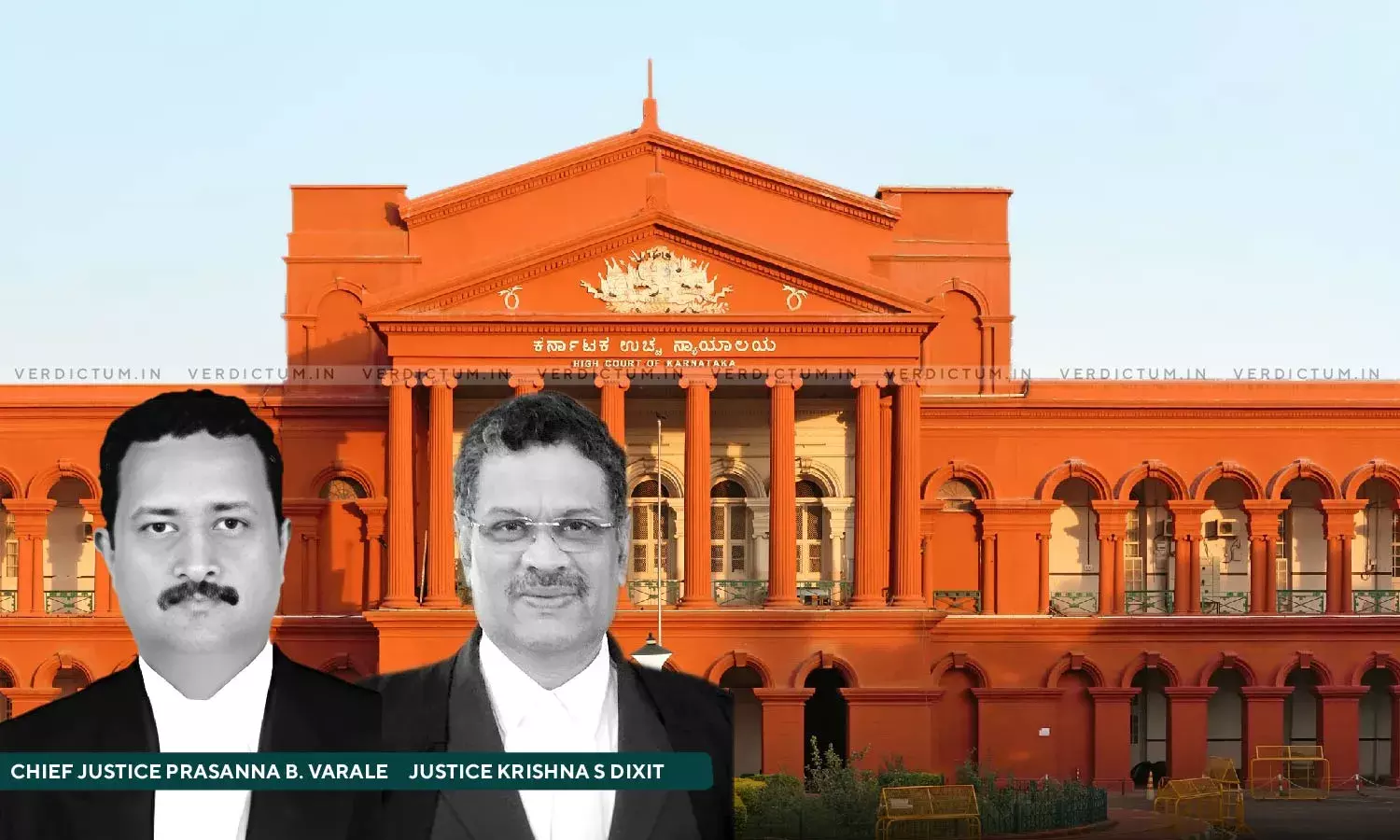Family Pension Payable Only To Legal “Wife”- Karnataka High Court Rejects Appeal By Second Wife

The Karnataka High Court held that Family Pension is payable to the "wife" and not to those whose marriage is considered 'no marriage' in the eyes of the law. The Court highlighted the legal prescription of monogamy among Hindus and the statutory prohibition of recognizing marriages during the subsistence of a prior marriage, except in specific justifiable exceptions. This appeal challenged an order which denied relief to second wife.
The court had rejected her request for Family Pension and arrears under the Karnataka Civil Services Rules, citing her status as the second wife while the first marriage was still subsisting.
A Division Bench of Chief Justice Prasanna B. Varale and Justice Krishna S Dixit held, “Family Pension is payable to the “wife”, and not to those whose marriage is ‘no marriage’ in the eye of law, the limited status of legitimacy of children begotten therefrom, by virtue of Sec.16 1955 Act, notwithstanding.”
Advocate Sharmila Gowda M R. appeared for the Appellant and Advocate Niloufer Akbar appeared for the Respondents.
The appellant's counsel argued that even a second wife is entitled to Family Pension. The government's counsel countered this, emphasizing that the appellant married the employee while his first marriage was still valid.
The appellate court, having reviewed the arguments and documents, agreed with the Single Judge's reasoning. It concurred that the appellant was not the legally wedded wife for the purpose of granting Family Pension. The Court said, “It hardly needs to be stated that amongst Hindus monogamy is not only ideal but a legal prescription and therefore marriage contracted when the first wife is alive, cannot be taken cognizance of by law, subject to all just exceptions into which the argued case of the appellant does not fit.” Marriages during the subsistence of a prior marriage are not recognized by law, with specific exceptions that do not apply in this case.
The Court added, “Recognizing such relations arising from second marriage during the subsistence of first one is detrimental to public interest inasmuch as that would facilitate directly or indirectly the employees contracting the second marriage, which is legally impermissible. Statutorily bigamy is an offence punishable u/s. 17 of the Hindu Marriage Act, 1955.”
The Court cited the Supreme Court's decision in Raj Kumari vs. Krishna, emphasizing that pension is normally given to the legally wedded wife.
The Court found the appeal devoid of merits and dismissed it.
Cause Title: Mahalakshmamma v. The Secretary & Ors., [2023:KHC:41044-DB]
Click here to read/download Judgment


